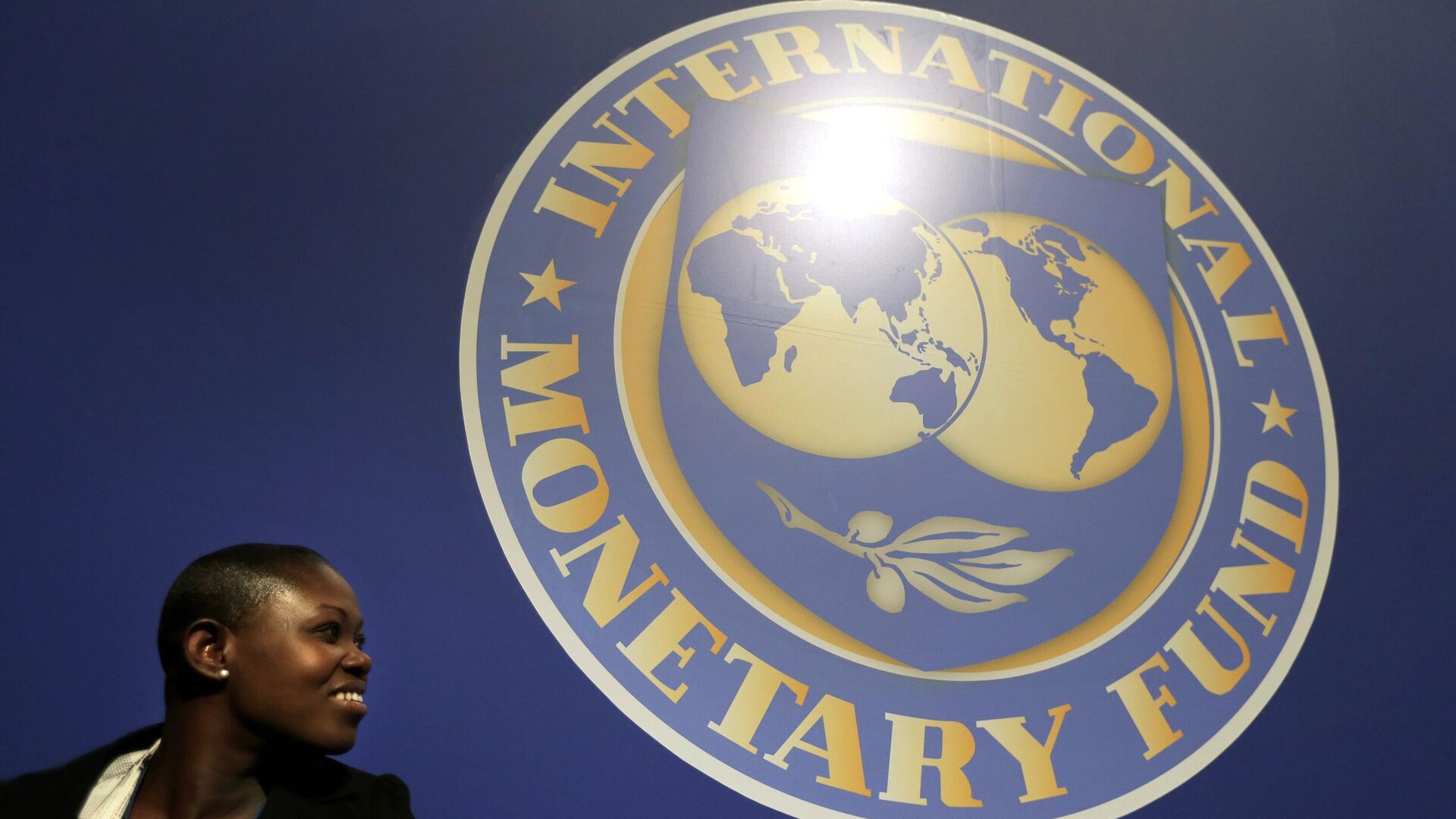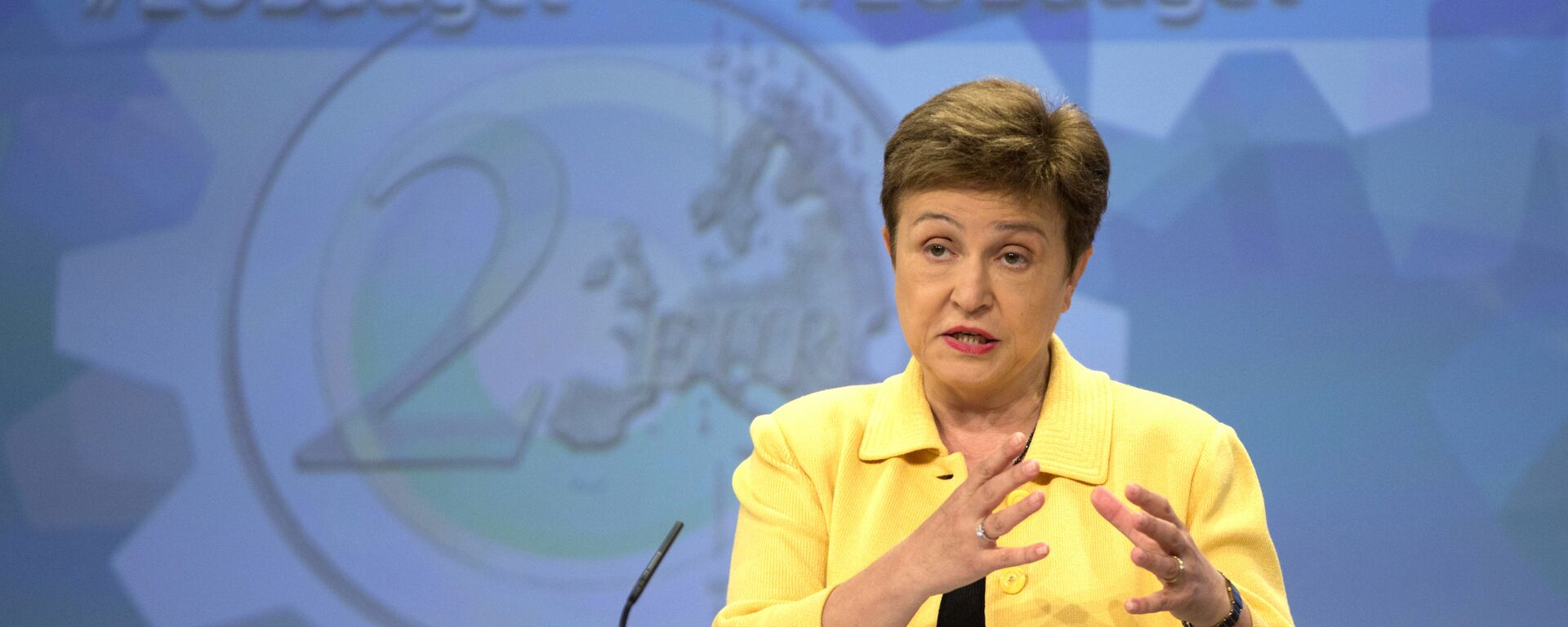Many Western States in 'Critical Situation' Due to High Public Debt - IMF Official

© AP Photo / Itsuo Inouye
Subscribe
WASHINGTON (Sputnik) - Many countries around the world, including Western ones, are in a critical condition due to their high levels of public debt, International Monetary Fund (IMF) Executive Director for Russia Aleksei Mozhin told Sputnik.
"After COVID, there was a big recession in the economy; budget deficits increased and had to be financed by increasing public debt. Many countries found themselves in a critical situation in terms of public debt, including Western countries," Mozhin said.
Years of irresponsible budgetary and monetary policy, including pumping money into the economy to revive it, lie at the heart of the current debt crisis, he said.
Mohzin pointed out that the example of Japan shows it is possible to kick the can down the road to avoid default for a long time, but at the cost of the Japanese economy not growing for 30 years.
This is the case with other economies as well, the Italian economy has not grown for 20 years, he said.
"All these are consequences, first of all, of the skyrocketing level of public debt," Mozhin said.
Almost all European countries are now facing significant levels of debt, including Great Britain, France, Spain, Portugal, not to mention Greece and Italy, Mozhin noted, characterizing the situation as "simply awful."
At the same time, Mozhin said sick economies must experience pain to get better as there are no other ways to treat them. They must raise interest rates to reduce inflation but that kills economic growth and increases the cost of borrowing.
"If there is a huge public debt, it means that 'budget consolidation,' achieving budget surplus, is required. This requires either an increase in taxes in order to increase budget revenues or a reduction in budget expenditures. Both kill economic growth," Mozhin said.
The countries of the collective West cannot cope with these challenges because of the ruling populism there, he said.
"The very political system of these countries leads to the fact that they have a complete fixation on short-term indicators," Mozhin said. "Good growth and low unemployment must be achieved today at all costs, otherwise you may lose the upcoming elections. And elections are held there almost every year."
Mozhin noted that states that find themselves in a critical situation because of high debt are able to avoid defaulting by issuing new government bonds and forcing their own banks to accept the government debt.
"Europe will gradually turn into a region with an average standard of living. This is a tragedy, but I do not see the ability of the authorities to allow pain," Mozhin said.
IMF Faces Difficulty Providing New Loans to Countries in Need
The International Monetary Fund is having a hard time lending new loans to many low- and middle-income countries who have skyrocketing public debt, Mozhin added.
"Since IMF lends money, it turns out that its loans lead to a further increase in the public debt of these countries," Mozhin said.
The IMF has enough funds to support countries in need, but many of them found themselves in severe debt crisis, he said.
Mozhin pointed out that there is a need to "lower the public debt, restructure it, partially write it off."
However, such action is hampered by the presence of different categories of creditors, including international organizations, individual countries that provide bilateral interstate loans and commercial creditors who simply buy government bonds, Mozhin said.
"We don't even know the names of these commercial lenders, because they force the authorities of countries to sign so-called 'confidentiality agreements' when granting loans. Basically, these are American non-bank financial institutions, such as asset management funds," Mozhin added.
IMF Russia Executive Director Says Fund Already Changed Lending Rules 3 Times for Ukraine
The International Monetary Fund has already changed lending rules three times in the case of Ukraine, IMF Executive Director for Russia said.
"For Ukraine, the IMF has already changed the lending rules three times since 2015," Mozhin said.
Speaking about the financial package for Ukraine, Mozhin indicated that within the total amount of borrowings of $15.6 billion, most of the funds are intended to repay Kiev's debt to the IMF on previous loans.
"In fact, the IMF solves two tasks here. First, it allows avoiding a Ukraine default to the Fund. There has never been such a case in the history of the IMF," Mozhin said. "And second, the IMF kind of helps meeting the wishes of the main shareholder."
IMF spokesperson Julie Kozack said earlier in June that the IMF Executive Board will consider the disbursement of a $900 million tranche for Ukraine later in the month.
In March, the IMF Executive Board approved a four-year funding arrangement for Ukraine worth $15.6 billion.
IMF Can Play Key Role in Limiting Impact of Collapse in Global Cooperation
The International Monetary Fund can help minimize the negative consequences of the current period of devastation and collapse in global cooperation and survive itself in that process, Mozhin said.
"I still hope that the IMF will survive, because I really believe in global cooperation, that this period of devastation and collapse will end someday," Mozhin said.
During the very period of devastation and collapse in global cooperation, the IMF will be able to play a role in limiting the negative consequences, Mozhin added.
West Seeks to Prevent States Paying Off Debt to China
The collective West is making every effort to prevent China from receiving back what it is owed by heavily indebted developing countries, Aleksei Mozhin said.
"The West seeks to ensure that developing countries with a high-level of public debt do not pay China, but not other creditors, including private holders of government bonds of these countries," Mozhin said.
China has become the main creditor of all developing countries, Mozhin noted, adding that the structure of debt obligations has changed a lot with the decrease in the share of Western countries who are members of the Paris Club of creditors and the growth of the share of China.
At the same time, China objects to the Paris Club dictating to Beijing the terms of debt write-offs and the IMF dictating the terms of debt restructuring, Mozhin said.
"The Chinese, on the one hand, are trying to find some way out, they are not enemies of these poor countries ... you need to understand that if China finances, then it is its banks that finance, they finance specific projects - to build a new airport or a seaport there," Mozhin said.
Mozhin explained that China opposes debt write-offs until commercial creditors take a similar step, but "they sit and do nothing."
"There is a huge element of scam in everything. The holders of government bonds finance the budget deficit at huge, completely usurious interest. And it is not clear how to deal with them," Mozhin said.



